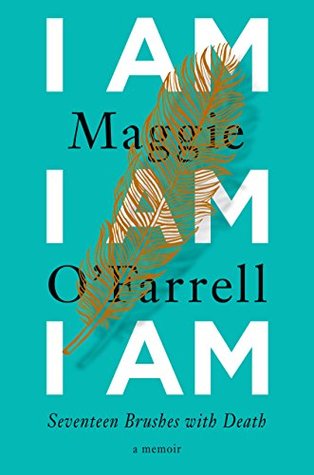More on this book
Community
Kindle Notes & Highlights
Read between
July 15 - July 17, 2025
If, as a child, you are struck or hit, you will never forget that sense of your own powerlessness and vulnerability, of how a situation can turn from benign to brutal in the blink of an eye, in the space of a breath. That sensibility will run in your veins, like an antibody. You learn fairly quickly to recognise the approach of these sudden acts against you: that particular pitch or vibration in the atmosphere. You develop antennae for violence and, in turn, you devise a repertoire of means to divert it.
We are, all of us, wandering about in a state of oblivion, borrowing our time, seizing our days, escaping our fates, slipping through loopholes, unaware of when the axe may fall.
That the things in life which don’t go to plan are usually more important, more formative, in the long run, than the things that do. You need to expect the unexpected, to embrace it. The best way, I am about to discover, is not always the easy way.
When he took my hand he taught me something about the value of touch, the communicative power of the human hand.
The people who teach us something retain a particularly vivid place in our memories. I’d been a parent for about ten minutes when I met the man, but he taught me, with a small gesture, one of the most important things about the job: kindness, intuition, touch, and that sometimes you don’t even need words.
Neuroscientists have been trying for years to pin down what it is about travel that alters us, how it effects mental change. Neural pathways become ingrained, automatic, if they operate only by habit. They are highly attuned to alterations, to novelty. New sights, sounds, languages, tastes, smells stimulate different synapses in the brain, different message routes, different webs of connection, increasing our neuroplasticity. Our brains have evolved to notice differences in our environment: it’s how we’re alerted to predators, to potential danger. To be sensitive to change, then, is to ensure
...more
We do what we have to do to survive; as a species, we are inventive in the face of adversity. Robert Frost said, “The best way out is always through,” and I believe this to be true but, at the same time, if you can’t go through, you can always go around.
I inserted a scene like this into my third novel. I recast it, reimagined it, repositioned it. It was the only time—until this—that I ever put anything to do with my encephalitis into writing. I made the girl in the bed into the sister of the protagonist; I made the child outside into a little boy, pulling a toy train. I made the nurse beside me jump up, embarrassed and shocked, to shut the door. I used to read it whenever I did public events for the book, which strikes me now as an odd choice. Why did I do that? Why read a scene drawn from what is possibly one of the worst moments you could
...more


